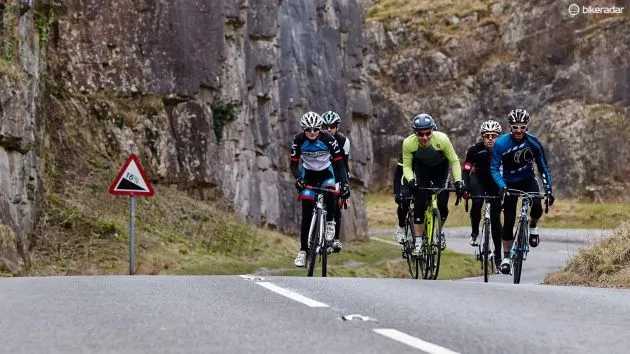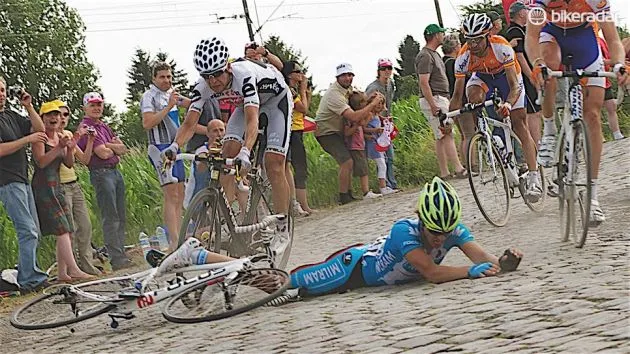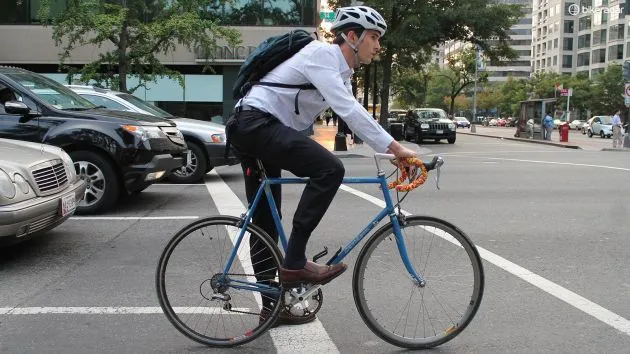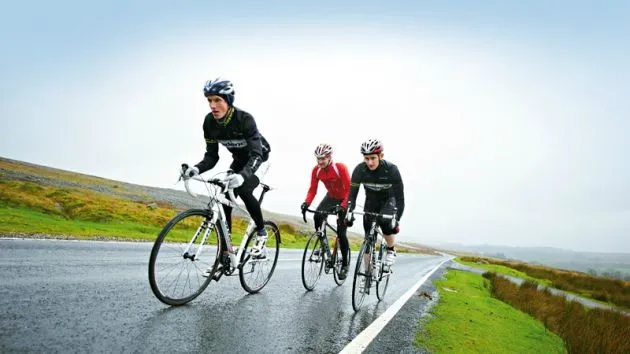Sure it may look like the rider who just floated by you doesn't have a care in the world, but chances are they too are rattled by some situations when cycling. Almost every cyclist has a few scenarios that make them cautious or uptight. The good news is you're not alone and there are solutions to help dial down the anxiety. All of these tips and tricks can be used for both road and mountain riding, so get out there and stop worrying!
- How riding in a group improves your performance
- Top 5 fixes every mechanic should know
- Don't be such an internet mechanic
1. Getting dropped

Getting dropped on a group ride and not knowing the route or being the slow person holding up the pack is a common fear. It helps to remember that every cyclist was a beginner at some point. Plus, it’s not a big deal to get dropped as long as you have a plan. Your plan could consist of just finishing the current ride or turning around, or going a completely different way. What is a big deal is that by joining a faster group ride you’re trying to improve and that’s what counts.
2. Crashing

Sorry for being Captain Obvious here, but no one likes crashing. Luckily there are ways to help avoid unpleasant get offs. First, make sure your equipment is in proper working order: replace worn-out parts, adjust brakes and gearing, and be realistic with the intended life cycle of products. Next, gain skills. This can be done by riding with people better than you or through dedicated coaching clinics. Lastly, practice. Find a safe area and work on your balance, handling and other technical moves. The learning curve is much less steep in a soft, grassy field than on the road.
3. Unfixable mechanical

While bikes tend to be pretty simple machines and generally give plenty of advanced warning before breaking, being mechanical beasts things do happen. The best way to avoid a roadside repair is to check over your bike and gear regularly. Replace or adjust parts as needed, especially worn-out tires. It also helps to familiarize yourself with basic repair know how, such as changing a flat tire, fixing a chain or making minor adjustments safely while in the comfort of your own home.
4. Traffic

While this is hugely dependent on where you live, one of the most cited reasons people give for not riding or commuting is fear of traffic. Riding defensively, anticipating what drivers might do and obeying traffic laws take a big chunk of the risk away. Adding front and rear lights (even in the daytime) and wearing bright, reflective clothes and gear also helps. Finding alternative routes is also an option and in my opinion one of the biggest reasons to give commuting and urban riding a go.
5. Wet roads

When the weather makes riding conditions less than ideal, it’s natural to get apprehensive. There are a couple tricks though that can help. First off, drop a couple PSI out of those rock hard tires. With less pressure there’s more tire on the road for more traction. Next up, rethink your braking. Grabbing more rear brake and less of the front will lessen the chance of your front tire slipping. Lastly, try to keep you weight centered on the bike so both of your tires have the best opportunity to gain traction.